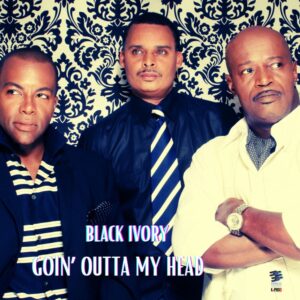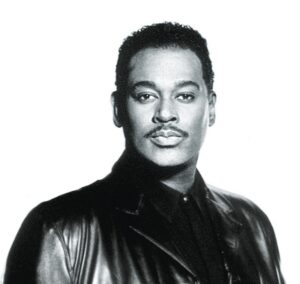There are some definite attributes worthy of embrace in this late ‘60s, early ‘70s Black love and unity fest that is the contemporary vision for singer/arranger Navasha Daya and her producer/songwriting partner, Fanon Hill, on Lom Nava Love (Original Motion Picture Soundtrack). There are also some rather clichéd “consciousness” tropes that will cause some teeth to gnash from the occasional wagging finger, and more cynical eyes to fight a heavy battle resisting the urge to roll over some of the more maddeningly repetitious elements of this noble effort, but don’t let those rare missteps dissuade you from experiencing Daya and Hill’s righteous musical journey. In their capable hands, liberation feels just around the bend.
In this documentary soundtrack, the overall feel is one of the sun always shining with relentless optimism, the upbeat drum of socially conscious messaging cleansing the toxic spirit, progressive politics elevating the masses, and city pride burning the soul – and that’s just on the first track. A generally dazzling display of soulful vocal and instrumental prowess traveling over multiple Black American Music genres, there is much here to enjoy about Lom Nava Love, but as with most overly familiar retro soul revivals, one must be in the mood.
As an alternating rallying cry and communal celebration, the 15-song backdrop is fitting for a documentary highlighting the work of Mama Shirley Foulks, a community organizer and activist in Baltimore’s Cherry Hill public housing who unified area Black families to resist the structural and divestment challenges facing their beleaguered community. Coming off as part WattStax, part Philadelphia International Records (PIR) Wake Up Everybody meets The Message In The Music, the driving energy of anthems like “Baltimore Stand Strong” and “Operation 666 Poverty” will put a smile on the faces of Stax and early PIR fans. A relative newcomer, Hill has a facility for capturing a time and era not his own.
Sadly, Hill’s mastery of past musical expressions (and the painful energies that birthed them) may be because the more things change the more they’ve stayed the same, at least for Black families under siege in cities like Baltimore. Black families are the thematic heart of this album, which at various turns highlights their uphill fights while also celebrating their love, resistance, and resilience. Without the documentary, some of the songs about such families are inside baseball, like “I Am Because We Are (Tribute to T)” about The Dawson Family, who are apparently quite awesome, if Daya’s earnest delivery over Hill’s feverish jazz dream track is to be believed. Throughout, one gets the sense of how these families are winning and losing a rigged game.
Best intentions aside, there are some leaden challenges holding some of the project back from iconic status. Lyrically dense songs like the sparely produced “Don’t U Know” and the acoustic “Whose Child” weigh down some of the material, keeping it from taking flight from often promising beginnings. Others like the romantic “Love Journey” and the inspiring “Hallelujah” manage to transcend the heavy-handed poetics thanks to Daya’s flawless delivery and the unexpected instrumental surprises and flairs that crop up with regularity in Hill’s polished productions. Also done as a remix, “Halleljuah” in particular is perhaps the project’s most excitingly executed, with Daya’s voice vibrantly pushing against the tight production and arrangement constraints, causing a most delicious tension. Having written and produced every song, a very controlled Hill is rarely off his game in creating inviting soundscapes and knows his way around several instruments, but when he’s off, he’s disastrous. As with the preachy and vaguely dystopic “Better Than This,” which somehow manages to be both underwhelming and overdone, and the reggae Tourette of “It’s Still About Freedom” which will have you wondering if your record is skipping, until you remember you’re streaming and not playing vinyl.
Named after the West African Ewe phrase expressing that “if you love someone then you will come to them,” a core principle of Foulks’ organizing philosophy, Lom Nava Love occasionally offers the kind of world music that informed such cult classics as Angela Bofil’s “Under The Moon And Under The Stars” and the All ‘n’ All peak of Earth Wind & Fire, but here too often stays operating in the musical middle, only allowing certain instruments, usually horns or drums, to build and break out to new vistas. Fertile Ground fans of the former band’s frontwoman, Navasha Daya, will appreciate strands of the rootsy consciousness raising that has always threaded the now solo Daya’s catalog. In Hill, Daya has found another exceptionally talented collaborator, one who will hopefully edit more in some places and allow more breathing room for Daya’s magic in others. Together, they make the third chapter in Navasha Daya’s musical career something to see and hear, raised fists and all. Recommended.
By L. Michael Gipson










